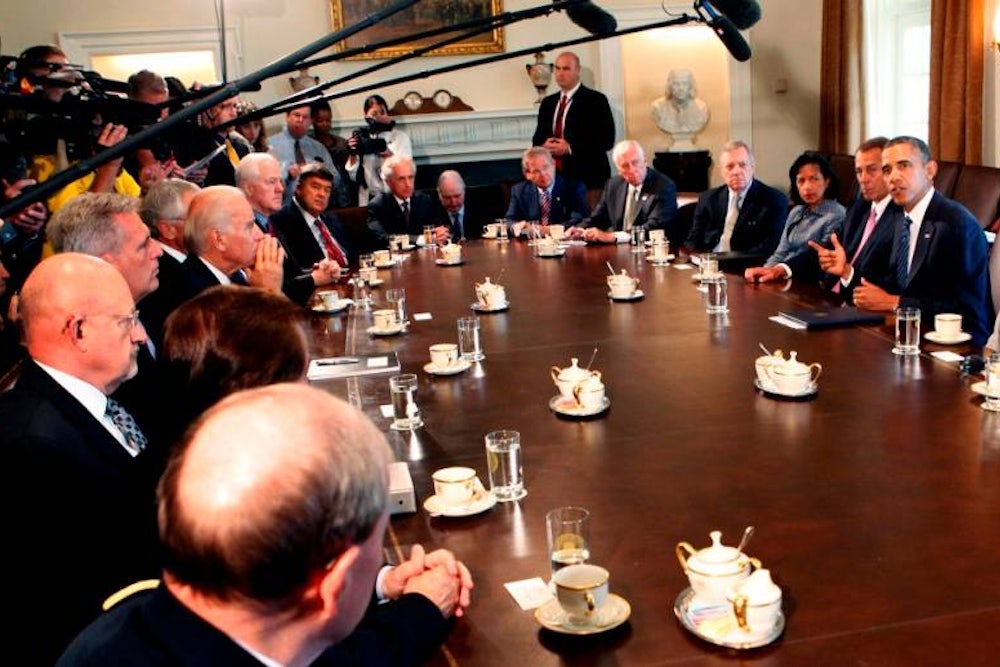Politico reports that a revised Syria AUMF is being drafted in the Senate:
Some of the options being considered for the revised Authorization for the Use of Military Force include a 60-day period for Obama to launch “narrow, limited” strikes against Assad’s regime with the potential for a 30-day extension of that deadline.
Language barring the insertion of U.S. ground troops — but crafted to allow special forces operations or the rescue of a downed American flier, for instance — is also being considered, the sources said.
And Obama would be prohibited from making the toppling of Assad’s government the goal of any U.S. military effort in Syria, as some hawkish lawmakers have supported
Two reactions.
First, Congress needs to pay attention to the distinction between an authorization and a prohibition. Authorizing strikes for sixty days, and only for sixty days, will not by itself prohibit the President from using force beyond sixty days. The reason: the President thinks he has independent, inherent Article II authority to engage in the strikes. If Congress wants to limit the President, it must do so through authorizations combined with prohibitions. The President can in theory disregard a prohibition as a violation of his Commander in Chief power. But in this context, where the constitutional arguments for inherent power are already weak, the arguments for an exclusive presidential power are much weaker yet (and the political costs of defying a congressional restriction in this context would be enormous).
Second, limiting the purposes of the attack to avoid toppling Assad’s government won’t by itself stop the President from acting to topple Assad’s government if he can do so pursuant to some more benign purpose, such as deterring use of WMDs. Recall that the administration had no overt authorization from the Security Council to topple Gaddafi. But ultimately it read the Security Council authorization “to take all necessary measures ... to protect civilians and civilian populated areas under threat of attack in the Libyan Arab Jamahiriya” as sanction to pursue and attack Gaddafi.
Writing an AUMF that adequately empowers and constraints the President is hard.
Jack Goldsmith is the Henry L. Shattuck Professor at Harvard Law School. This post originally appeared on Lawfare.
